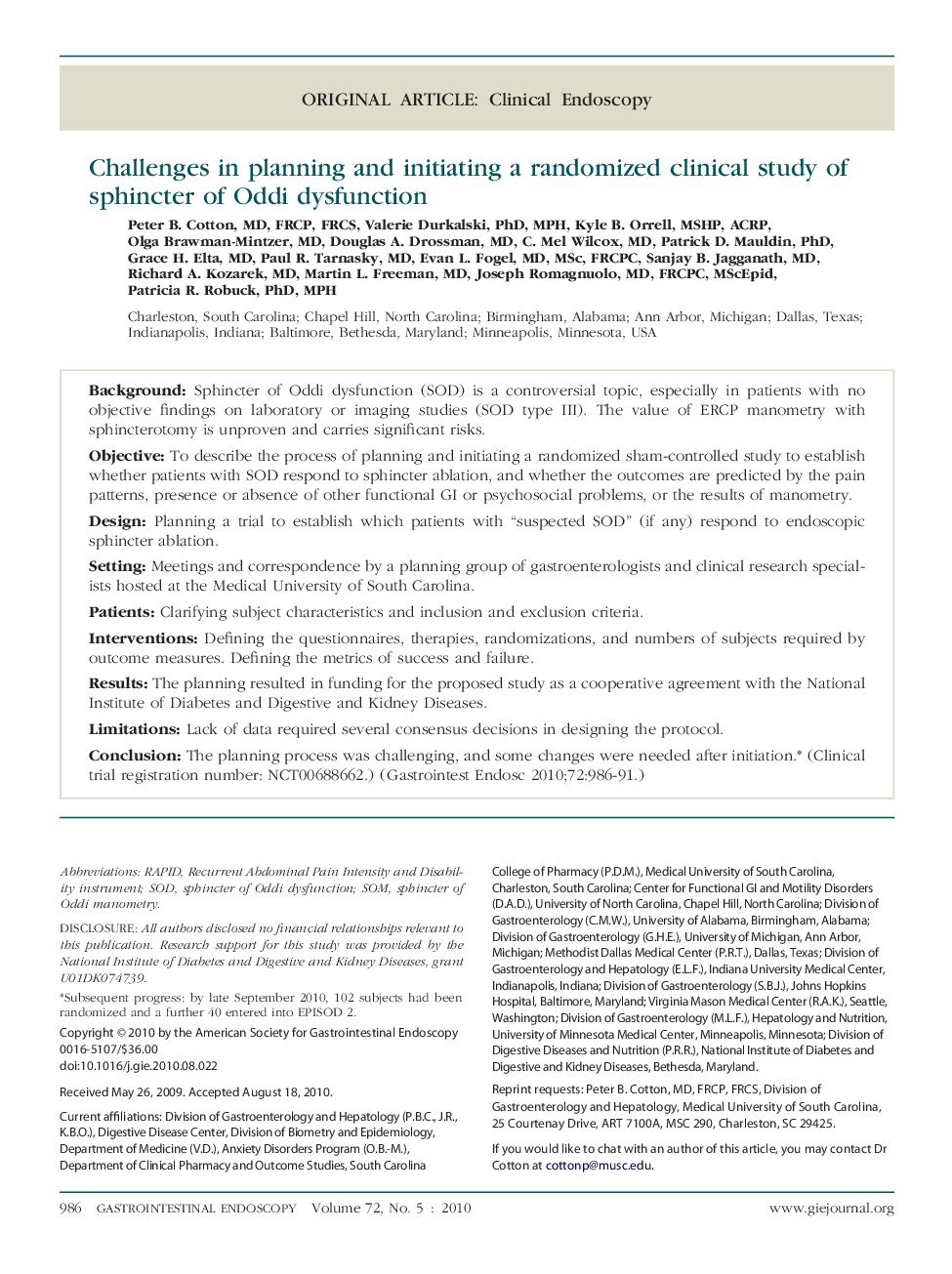| Article ID | Journal | Published Year | Pages | File Type |
|---|---|---|---|---|
| 3306387 | Gastrointestinal Endoscopy | 2010 | 6 Pages |
BackgroundSphincter of Oddi dysfunction (SOD) is a controversial topic, especially in patients with no objective findings on laboratory or imaging studies (SOD type III). The value of ERCP manometry with sphincterotomy is unproven and carries significant risks.ObjectiveTo describe the process of planning and initiating a randomized sham-controlled study to establish whether patients with SOD respond to sphincter ablation, and whether the outcomes are predicted by the pain patterns, presence or absence of other functional GI or psychosocial problems, or the results of manometry.DesignPlanning a trial to establish which patients with “suspected SOD” (if any) respond to endoscopic sphincter ablation.SettingMeetings and correspondence by a planning group of gastroenterologists and clinical research specialists hosted at the Medical University of South Carolina.PatientsClarifying subject characteristics and inclusion and exclusion criteria.InterventionsDefining the questionnaires, therapies, randomizations, and numbers of subjects required by outcome measures. Defining the metrics of success and failure.ResultsThe planning resulted in funding for the proposed study as a cooperative agreement with the National Institute of Diabetes and Digestive and Kidney Diseases.LimitationsLack of data required several consensus decisions in designing the protocol.ConclusionThe planning process was challenging, and some changes were needed after initiation.⁎ (Clinical trial registration number: NCT00688662.)
